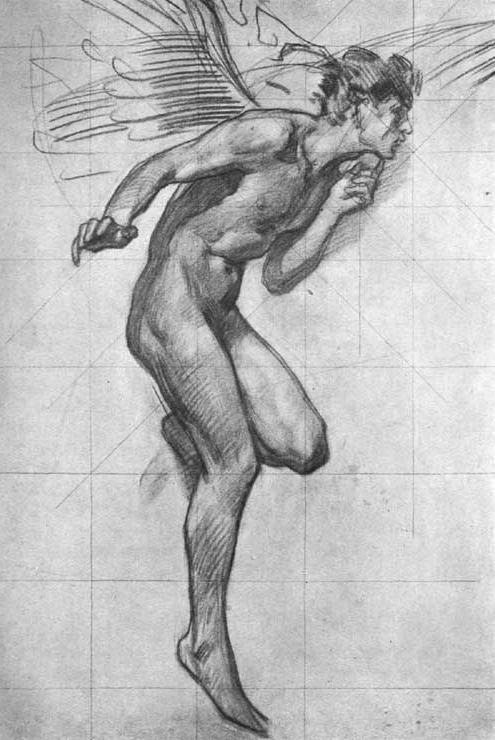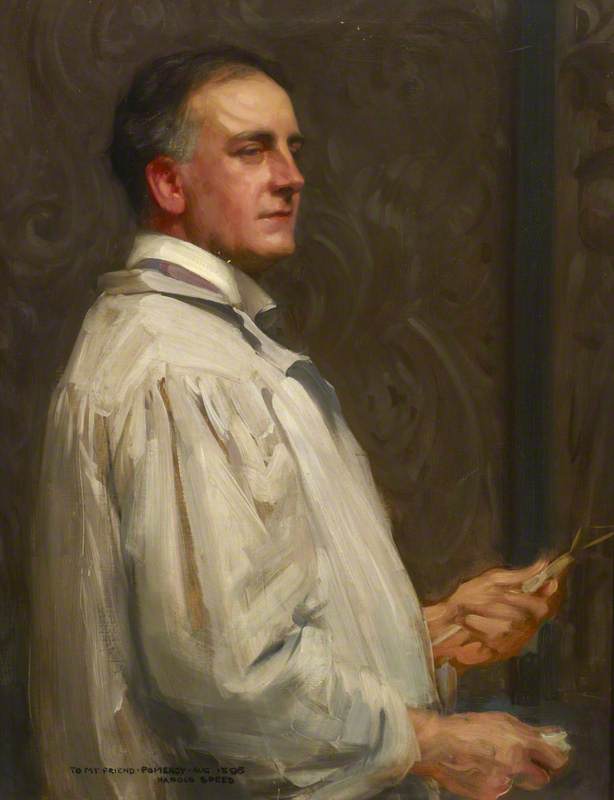The images in the post are works by the artist Harold Speed (1872 -1957). I've referenced him before in my post titled The Optical and Conceptual: Components of Perception. You can read that post by clicking "here."
Much of the time while I am painting, brushstrokes are
constantly cutting across one another. Yesterday while I was painting I
recalled a statement by Harold Speed from his book Oil Painting Techniques and Materials. In the passage I was recalling he was
describing “painting such details as the under eyelid…” And made the point that
“Generally speaking, remember that you can only attend to one edge of the touch
that you are making. If you try and
paint a touch that needs variety on both its edges, and you try and get the
variety on both sides at the same time, you will fail to get either right. ” In
essence when we place a stroke of paint we can only focus on the exactness
(drawing and placement) of one of its edges at a time. To get the other edge to
be exactly as we wish we can then recut into it with the next stroke of paint. This is such a simple and obvious thought and
yet it can be tremendously helpful at times.
Within the classically-based art circles I’ve been most
associated with, Harold Speed’s two books, The Practice and Science of Drawing and Oil Painting Techniques and Materials, are well-known and widely read. If
you are a representational artist and you’re not familiar with his books I
would highly recommend them. The Practice and Science of Drawing can be
read online for free here:
or here:
Even though I don’t necessarily paint in the exact manner
prescribed by Harold Speed, I find his books are full of insightful material—every time
I go back to them I seem to pick out some new bit of information. If you’ve got
any useful insights or tips you’ve gained from reading either one of his books
I’d love to hear about them in the comments below!


